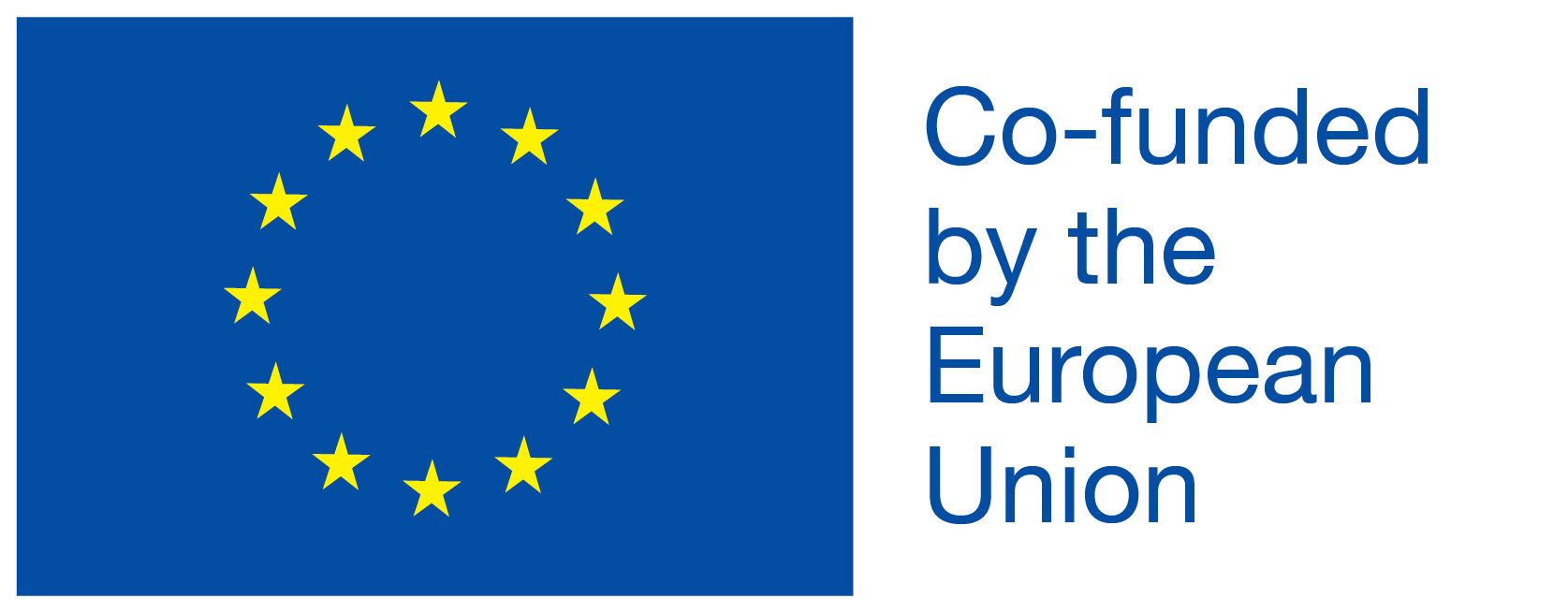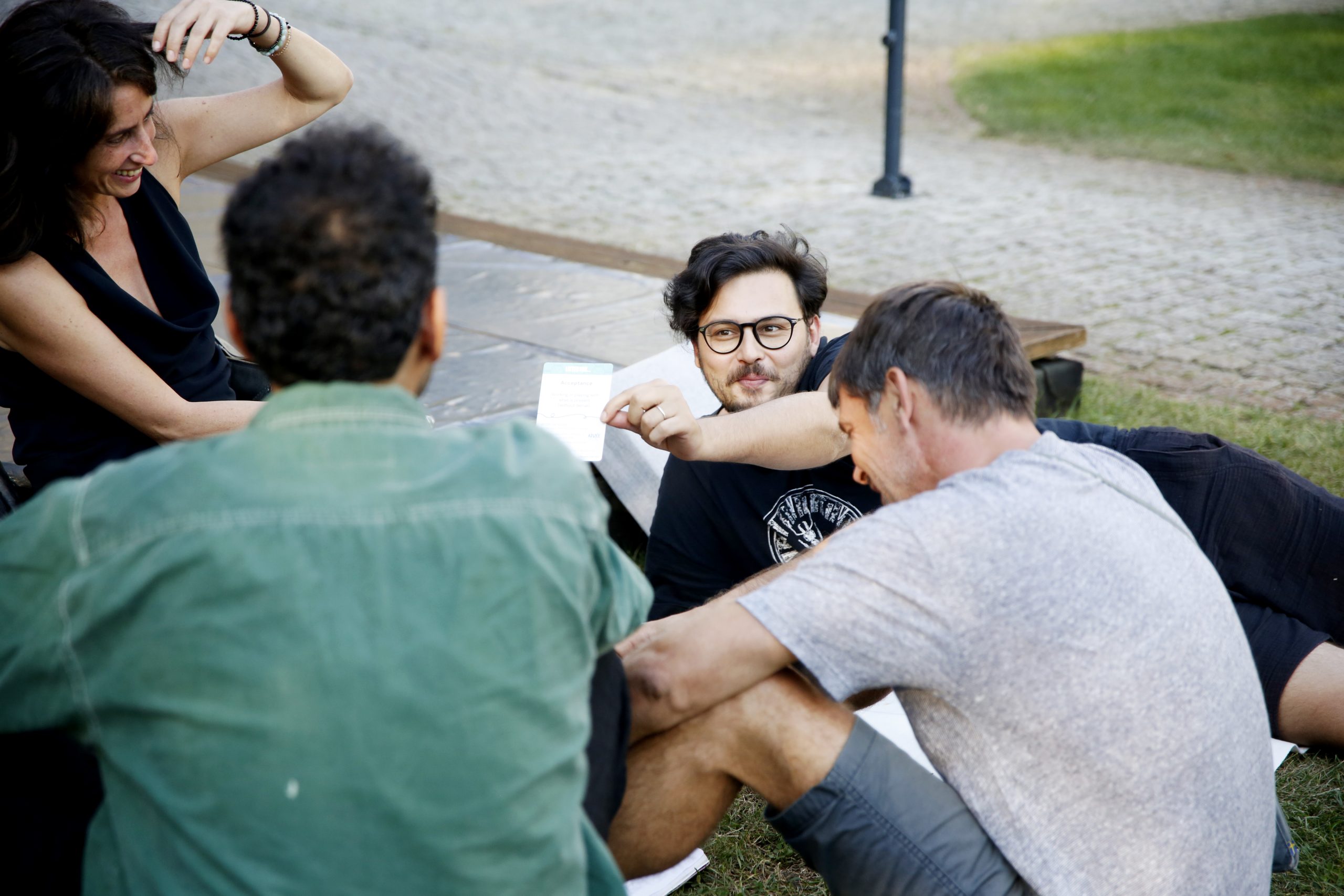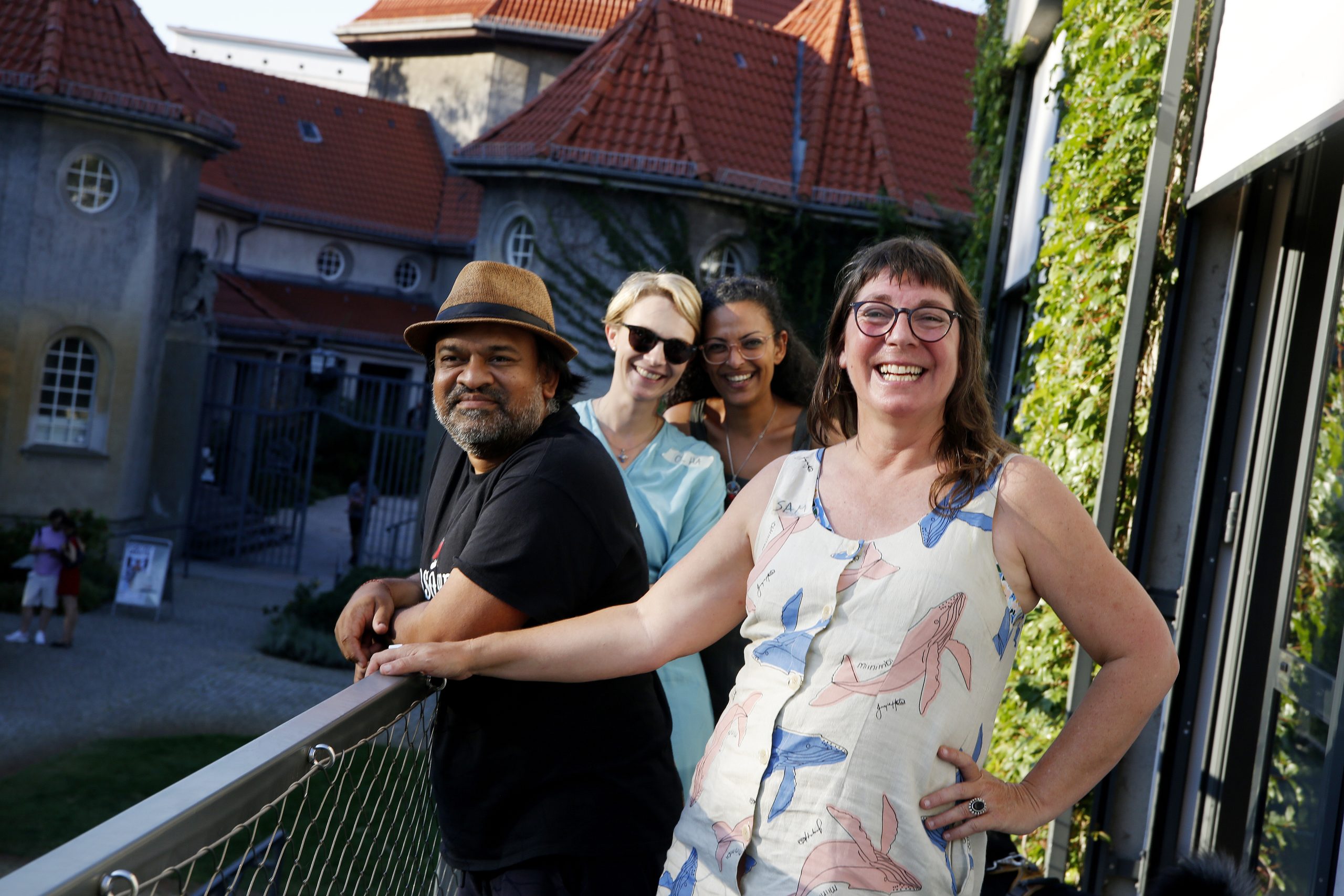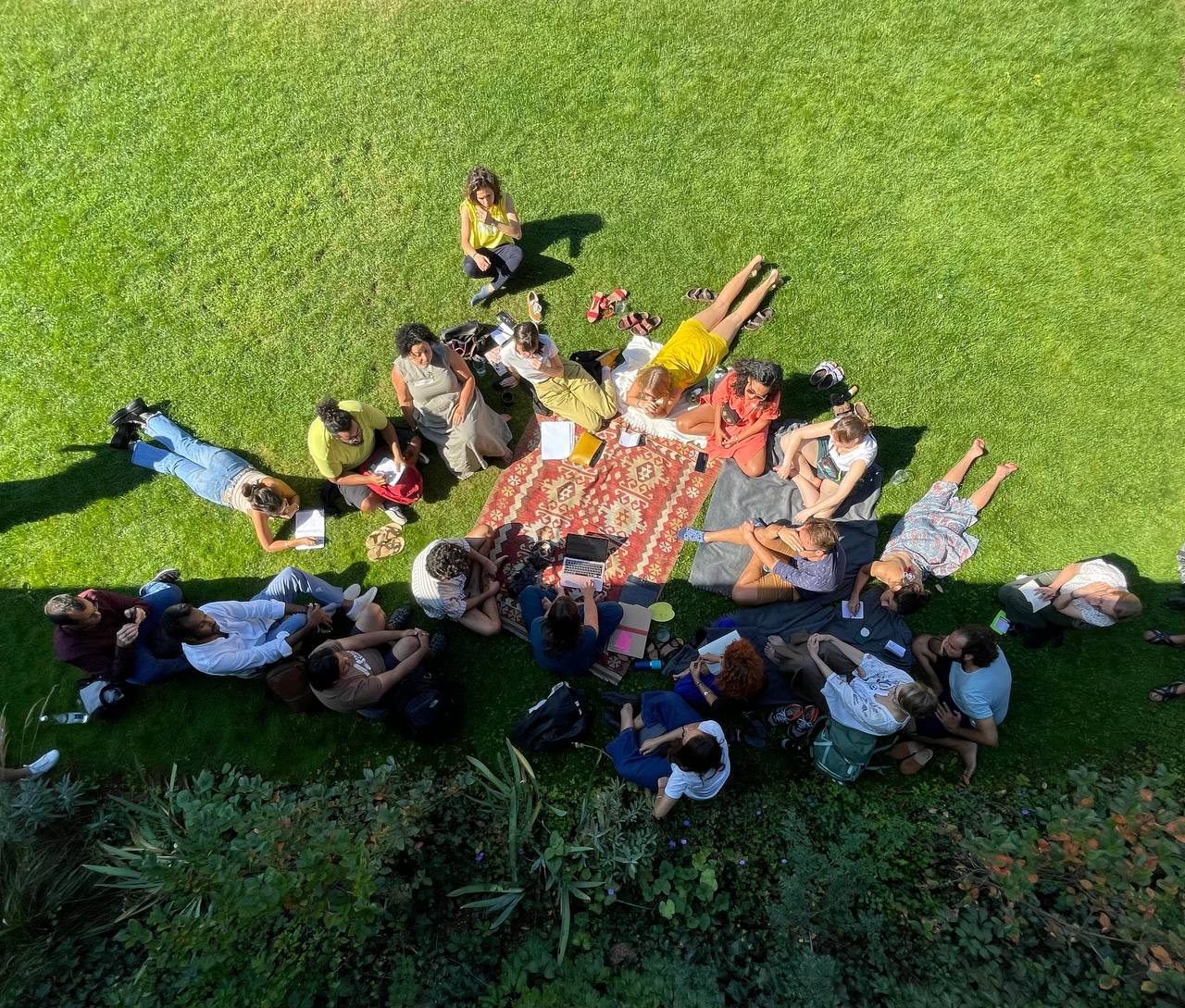
From 2020 until 2024, the All-Around Culture (AAC) program embarked on a transformative journey across the Southern Mediterranean, encompassing Algeria,....
2020-03-01 - 2024-02-28
Southern Mediterranean

Start Date: 2023-09-08
End Date: 2023-09-11
Berlin
Building upon the successes of its earlier iterations held in Amman and Egypt’s Nuweiba, the third edition of the Ecosystems Academy unfolded in Berlin in early September. As the exciting journey of exploration, discovery, and collaborative learning continued, beneficiaries of the All-Around Culture programme from southern Mediterranean countries were invited to join and be a part of this dynamic experience in Berlin.
The event was held at Silent Green; an event venue and creative hub situated within the historic premises of Berlin’s former crematorium in Wedding. This privately-run cultural quarter fosters cross-disciplinary artistic exploration, houses a vibrant community of creative professionals, offers versatile event spaces, and strives to establish a sustainable creative ecosystem that engages both the local neighbourhood and the global cultural scene.
Over four days the Ecosystems Academy was carefully crafted to guide participants through a series of exercises that foster diverse perspectives on learning and its methods. Kicking off the journey, we delved into the energy, thoughts, and questions each participant brought to the room. From there, we embarked on a collective exploration, delving into the intricacies of horizontal versus vertical working structures, unpacking their respective benefits and challenges.
During the sessions, facilitation was led by Silvana Naguib and Olha Kotska from zusa, along with Samantha Slade from Percolab and Bhavesh Patel. Samantha Slade’s book, “Going Horizontal: Creating a Non-Hierarchical Organization, One Practice at a Time,” served as the primary reference for guiding discussions and open sessions.

On the first day, extensive conversations revolved around the 7 domains of practice, which included autonomy, purpose, meetings, transparency, decision making, relationships and conflicts, and learning and development. 46 pParticipants from 14 countries engaged in discussions about the challenges and benefits of horizontal and vertical organisational structures. Some of the challenges highlighted included concerns related to mental health and the scarcity of successful circular models as examples.
The 7 domains of practice, derived from the book, played a pivotal role in shaping the discussions. The group’s exploration of the concept of “purpose” took a practical and interactive approach. Participants were tasked with identifying a collective purpose. To achieve this, each participant was instructed to select an object from the room that embodied values or concepts resonating with them personally. Subsequently, they did the exercise of articulating the purpose of randomly selected objects, such as a sound bowl or a leaf of sage. The interpretations varied; for instance, some saw the sound bowl as a means of communicating collective time, while others considered it a tool for conditioning. In contrast, the leaf of sage held different meanings, serving as both a decorative item and a symbol of connection to nature. After engaging in two rounds of practising with various objects, which facilitated a gradual immersion into the exercise and encouraged a connection with what could be described as “whole intelligence,” participants reached a stage in the third round where they truly owned their purpose, transcending the need for justification. This exercise effectively illustrated the alignment of individual and collective purposes.
The significance of regularly revisiting one’s purpose to preempt challenges and conflicts was emphasised. Collective purpose was viewed as a guiding force capable of steering the organisation through obstacles and external disruptions, introducing fresh perspectives into individual objectives. Recognizing the diversity of perspectives was considered essential for tackling the intricate aspects of shared goals, and it was underscored that creating an environment that acknowledged individual purposes is key.
The session also explored how individuals work together, delving specifically into the concepts of autonomy and responsibilities. Participants were prompted to think about three words associated with autonomy. Various facets of cooperative work were explored, encompassing practices like check-ins, collective decision-making using a consent protocol, engaging in talking circles, facilitating the gathering and documentation of insights, and effectively managing energy and momentum.
It was underscored throughout the session that the essence of effective collaboration did not revolve around everyone attempting to do everything but, rather, hinged on achieving clarity regarding each individual’s designated roles and responsibilities. The establishment of lightweight structures was deemed paramount to nurturing autonomy, particularly in the context of orchestrating meetings and other facets of organisational management. The absence of such structures was highlighted as a potential catalyst for chaos, emphasising the indispensability of structured approaches in fostering successful collaborative endeavours.

When the topic of “meetings,” one of the 7 domains of practices, was addressed, a protocol for co-managed meetings was introduced. This protocol essentially involved initiating the meeting by collaboratively establishing both its purpose and duration. Additionally, the protocol allowed individuals to consider their own needs and integrate them into the meeting agenda. As the discussion centred on the mechanics of co-managing meetings, insights were drawn from practical exercises involving co-managed slots within the agenda of the Ecosystems Academy.
During the closing session of the first day, participants engaged in the “bus exercise,” which originated from the collective inquiry methodology of “Gesturing Towards Decolonial Futures.” This exercise encouraged individuals to elevate their self-awareness and explore internal dynamics that are frequently disregarded. The aim was to foster an inclusive and open organisational culture by prompting participants to be more conscious of majority and minority voices and, consequently, create space for a diverse range of perspectives to emerge and be heard.

The theme of “learning by doing” carried through into the second and third days of the Ecosystems Academy, where the focus shifted to decision-making and open space technology. During these days, attendees were not only participants but also agenda-setters, with an open invitation to share their insights or experiment with new practices acquired from the previous exercises. What particularly stood out were the guiding principles underpinning open space technology, reminding both agenda-setters and participants of the essential tenets: “whenever it starts it is the right time,” “whoever comes is the right people,” “whatever happens is the only thing that could have,” and the importance of simply accepting and engaging in the present moment. These principles reinforced the Academy’s ethos of embracing spontaneity, inclusivity, and active participation. As the Academy continued to evolve and adapt, it left attendees with a powerful reminder that learning and collaboration thrive in an environment where curiosity and the willingness to engage are paramount.
From 2020 until 2024, the All-Around Culture (AAC) program embarked on a transformative journey across the Southern Mediterranean, encompassing Algeria,....
2020-03-01 - 2024-02-28
Southern Mediterranean
Over the past four years, our journey has been enriched by the accumulation of methods and tools designed to empower....
2023-12-12 - 2023-12-12
Zoom
As we approach the conclusion of the impactful four-year All-Around Culture Programme, which has positively influenced over 90 Cultural Entities....
2023-11-28 - 2023-12-10
Open Call


